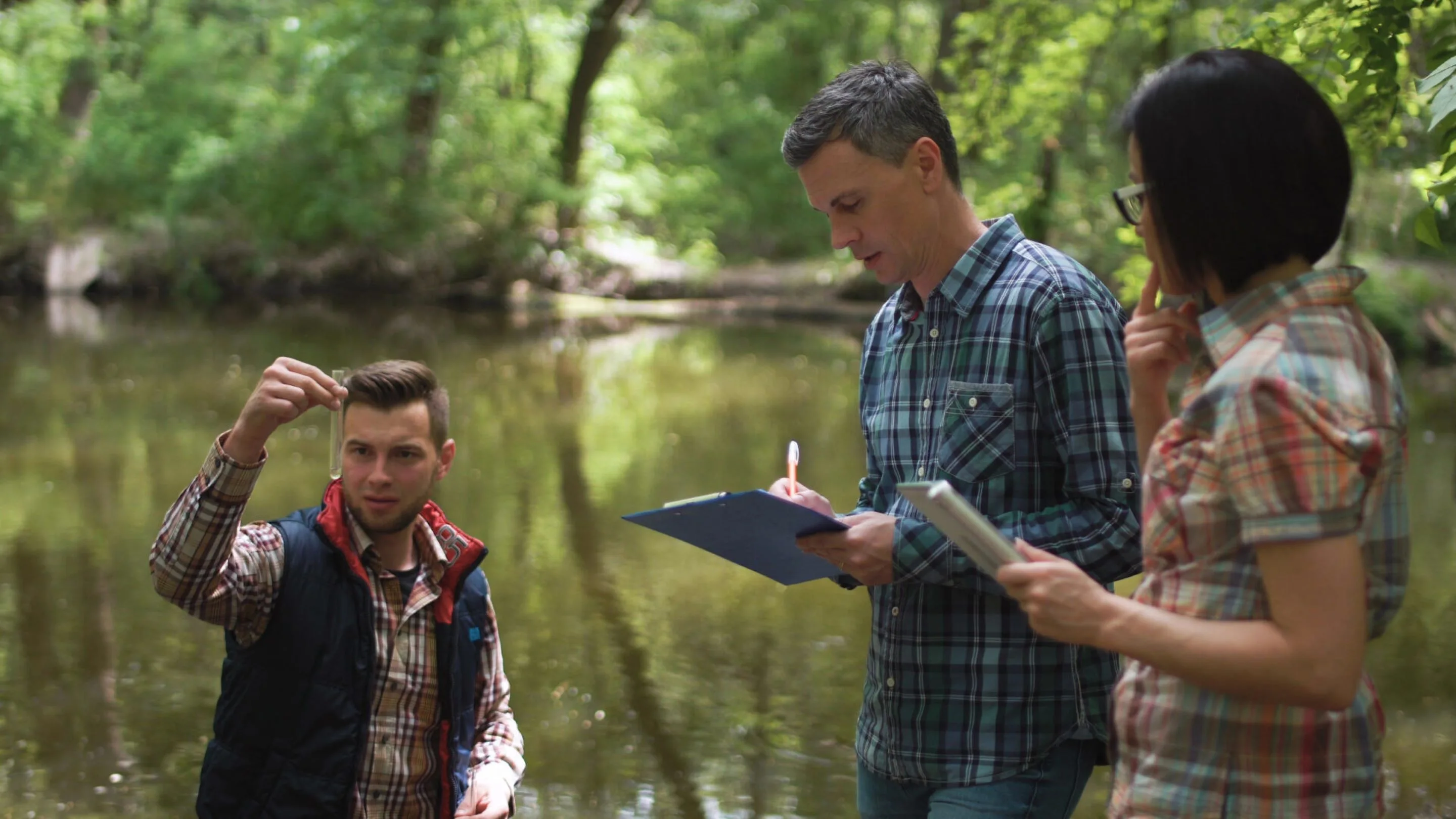Stories you may like
Behavioral Ecologist
Behavioral ecologists are scientists who study the behavior of animals, including humans, in relation to their natural environments. Integrating principles from ecology, evolution, and animal behavior, and utilizing field surveys, experiments, and mathematical modeling, they investigate how behaviors evolve, how they are adapted to ecological conditions, and how they impact an organism’s survival, reproductive success, and population dynamics.
The work of the behavioral ecologist has important implications for biodiversity conservation, wildlife management, and animal welfare.
Duties and Responsibilities
Behavioral ecologists aim to uncover the underlying mechanisms and evolutionary processes that shape animal behavior, contributing to our broader understanding of ecology, evolution, and the conservation of biodiversity. Here’s a summary of their typical tasks and responsibilities:
- Field Observations – conducting observational studies in the natural habitats of animals to gather data on their foraging patterns, reproductive strategies, social behavior, migration, and responses to environmental factors
- Experimental Studies – designing and conducting experiments in controlled settings to test hypotheses about animal behavior, such as the effects of resource/prey availability, competition, predation risk, or environmental stressors on behavior
- Data Analysis – analyzing data collected from field observations and experiments using statistical and mathematical methods to identify patterns, correlations, and relationships between behavior and ecological factors
- Modeling – developing mathematical models to simulate and predict animal behavior under different ecological scenarios, helping to understand the adaptive significance of behaviors and their impact on population dynamics and evolution
- Publication and Communication – publishing research findings in scientific journals, presenting findings at conferences, and communicating research to the public, policymakers, and conservation organizations to inform and influence decision-making and conservation strategies
- Conservation and Management – collaborating with conservationists, wildlife managers, and policymakers to apply research findings to conservation efforts, habitat management, and the mitigation of human-wildlife conflicts, such as crop damage, predation on livestock, and urban wildlife issues
- Teaching and Education – educating students, colleagues, and the public about animal behavior, ecology, and conservation through teaching, mentoring, workshops, and outreach programs
Types of Behavioral Ecologists
Now that we have a sense of the potential scope of the behavioral ecologist’s work, let’s look at some different types of these ecologists, each specializing in various aspects of animal behavior and ecology. These are some of the common subfields within behavioral ecology:
- Foraging Ecology focuses on the study of how animals search for, select, and consume food, and how foraging behaviors are influenced by factors such as prey availability, competition, and predation risk.
- Reproductive Ecology investigates the behaviors associated with finding and attracting mates, establishing territories, courtship displays, mating systems, and parental care strategies.
- Social Ecology studies the interactions between individuals within populations, including cooperation, competition, communication, social structure, and the evolution of social behaviors.
- Migration and Dispersal Ecology examines the movements of animals between different habitats, often in response to seasonal changes, resource availability, or to avoid unfavorable conditions and environmental challenges such as extreme temperatures, drought, or habitat destruction.
- Conservation Behavior focuses on understanding how human activities impact animal behavior, and how behavioral insights can inform conservation strategies and wildlife management practices.
- Cognitive Ecology investigates the cognitive abilities of animals, including learning, memory, problem-solving, and decision-making, and how these cognitive skills influence behavior and ecological interactions.
- Communication Ecology focuses on the study of animal communication systems, including visual, auditory, and chemical signals, and how communication behaviors evolve and function within ecological contexts.
- Evolutionary Ecology integrates principles from ecology, evolution, and behavior to understand how behaviors evolve in response to ecological pressures, and how behavior influences an organism's survival, reproductive success, and evolutionary fitness.
- Human Behavioral Ecology applies the principles of behavioral ecology to study human behavior from an evolutionary perspective, examining how cultural practices, social norms, and environmental factors influence human behavior and adaptation.
These subfields often overlap, and behavioral ecologists may work across multiple areas, integrating different approaches and methodologies to address complex research questions.
In addition to working in one or more of the niches described above, behavioral ecologists may specialize further. Here are some examples:
- Taxonomic Specializations – Behavioral ecologists may specialize in studying specific groups of organisms, such as birds, mammals, fish, insects, or reptiles. For example, ornithologists focus on the behavior of birds, while primatologists study the behavior of primates.
- System-specific Specializations – Behavioral ecologists may specialize in studying particular ecological systems or habitats and how animals adapt their behavior to them. Examples include marine ecosystems, tropical rainforests, grasslands, wetlands, deserts, urban environments, and agricultural landscapes.
- Methodological Specializations – Some behavioral ecologists specialize in specific research methodologies or techniques, such as molecular ecology, stable isotope analysis, telemetry tracking, remote sensing, or bioacoustics.
- Interdisciplinary Specializations – Behavioral ecologists may collaborate with experts from other disciplines to study complex ecological and behavioral phenomena. For example, they may work with geneticists, physiologists, neuroscientists, anthropologists, or computer scientists to integrate genetic, physiological, neurological, anthropological, or computational approaches into their research.
- Applied and Conservation Specializations – Some behavioral ecologists specialize in applied research aimed at addressing conservation challenges, managing wildlife populations, mitigating human-wildlife conflicts, or developing sustainable resource management practices.
- Theoretical and Modeling Specializations – Behavioral ecologists may specialize in theoretical ecology and mathematical modeling to develop and test theoretical frameworks, predictive models, or simulation tools to understand and predict animal behavior and ecological dynamics.
Workplace of a Behavioral Ecologist
Behavioral ecologists can work for a variety of organizations and institutions across different sectors. These are among their most common employers:
- Academic Institutions – Universities and research institutes often employ behavioral ecologists as faculty members, postdoctoral researchers, or research scientists.
- Government Agencies – Governmental organizations such as wildlife departments, environmental agencies, and conservation authorities employ behavioral ecologists to conduct research, monitor wildlife populations, develop conservation strategies, and manage wildlife and natural resources.
- Non-governmental Organizations (NGOs) – Conservation organizations, wildlife rehabilitation centers, and environmental NGOs often employ behavioral ecologists to conduct research, design and implement conservation projects, and advocate for wildlife protection and habitat preservation.
- Zoos and Aquariums – Zoological parks, aquariums, and wildlife sanctuaries employ behavioral ecologists to study animal behavior, design enrichment programs to enhance animal welfare, and develop breeding and reintroduction programs for endangered species.
- Private Sector – Environmental consulting firms, ecological research companies, and biotechnology companies may employ behavioral ecologists to conduct environmental impact assessments, biodiversity surveys, and research on animal behavior for commercial applications.
- Museums and Science Centers – Natural history museums and science centers often employ behavioral ecologists to conduct research, curate exhibits, and develop educational programs and outreach activities to promote public understanding of ecology, evolution, and animal behavior.
- International Organizations – International conservation and development organizations, such as the World Wildlife Fund (WWF), the Wildlife Conservation Society (WCS), and the United Nations Environment Programme (UNEP), employ behavioral ecologists to conduct research, develop conservation policies and programs, and collaborate with governments and local communities to promote sustainable development and biodiversity conservation.
- Media and Communication – Some behavioral ecologists work as science writers, journalists, or communicators for media outlets, publishing companies, and science communication organizations, translating scientific research into accessible and engaging content for the general public.
Common work environments for behavioral ecologists include outdoor field sites and field stations in natural habitats, laboratories, offices, classrooms and lecture halls, and remote and international locations.
How to become a Behavioral Ecologist
In addition to a passion for working with animals, becoming a behavioral ecologist requires a combination of formal education, training, and practical experience in the field of animal behavior. Here is an overview of the pathway to the career:
High School Diploma or Equivalent
Earn a high school diploma or equivalent. High school education provides a foundation in basic communication and math and organizational skills, and it lays the groundwork for further learning.
Bachelor's Degree
A bachelor’s degree in biology, ecology, zoology, animal sciences, environmental science, or a related discipline is often the first formal step towards becoming a behavioral ecologist. Coursework at the undergraduate level should include foundational courses in biology, ecology, evolution, genetics, animal behavior, statistics, and research methods. Additional courses in physiology, ethology, conservation biology, and environmental science can be beneficial.
Research Experience
Gain hands-on research experience through undergraduate research projects, internships, or volunteer positions in behavioral ecology labs, field stations, or research organizations. This experience will help you develop essential research and collaboration skills, gain basic knowledge of field and laboratory techniques, and build a strong foundation in scientific inquiry and data analysis.
Master’s Degree
While not always mandatory, a master’s in one of the disciplines referenced above is generally recommended for career advancement. Master’s programs typically include a research component, where students conduct original research, develop research skills, and gain practical experience in field and laboratory techniques.
Doctoral Degree
A relevant doctoral degree (Ph.D.) is often necessary for obtaining academic positions and leading research projects in behavioral ecology. Ph.D. programs involve advanced coursework in behavioral ecology, ecological theory, quantitative methods, research ethics, and professional development. Doctoral students are required to conduct original, independent research, develop a research proposal, complete a dissertation, and defend their findings.
Specialization
Master’s and doctoral programs allow students to choose a specialization within behavioral ecology based on their interests and career goals. Among the options are foraging ecology, reproductive ecology, social ecology, conservation behavior, and cognitive ecology. For a complete list of specializations in the field, please refer to the What does a Behavioral Ecologist do? section in the career overview.
Fellowship or Postdoctoral Training (Optional)
After earning their master’s or doctoral degree, graduates may pursue a fellowship or postdoctoral position. These are temporary positions that allow graduates to work with leading researchers in the field, collaborate on interdisciplinary projects, and prepare for independent research or academic positions. Generally, fellowships and postdocs come from three sources: colleges and universities, government agencies, and foundations. However, some may be available in private industry.
Continuing Education and Research Publication
Stay informed about the latest research, methodologies, advancements, and trends in behavioral ecology and related fields. Attend workshops, conferences, and seminars to present your work, and participate in professional development and networking activities to keep your knowledge current.
Seek mentorship from experienced behavioral ecologists or professors who can provide guidance, support, and opportunities for professional development and research collaboration.
As you progress in your academic journey, aim to publish your research findings in peer-reviewed journals. Building a strong publication record and establishing yourself as a contributor to the field of behavioral ecology will enhance your credibility and visibility within the scientific community.
Certification and Professional Organizations
There isn't a specific certification widely recognized as a standard credential for behavioral ecologists. Instead, qualifications and credentials are primarily based on their educational background, research experience, and expertise in specific areas of animal behavior and ecology. There are, however, professional certifications and training programs related to skills or methodologies that behavioral ecologists might find useful, depending on their focus or specialization. Here’s a sampling:
- Certified Ecologist (CE) – Offered by the Ecological Society of America (ESA), the CE certification recognizes professional ecologists who have demonstrated a high level of skill, knowledge, and experience in the field of ecology. This certification can be beneficial for behavioral ecologists working in ecological research, conservation, and management.
- Certified Applied Animal Behaviorist (CAAB) – Offered by the Animal Behavior Society (ABS), the CAAB credential is designed for individuals who have a graduate degree in a biological or behavioral science and specialized training and experience in animal behavior.
- Certified Professional Dog Trainer (CPDT) – The CPDT credential is offered by the Certification Council for Professional Dog Trainers (CCPDT) to professionals who have demonstrated knowledge and skills in dog training and behavior management through experience, education, and passing a certification examination.
- Certified Dog Behavior Consultant (CDBC) – The CDBC credential is offered by the International Association of Animal Behavior Consultants (IAABC) to professionals with a combination of education, training, and experience in animal behavior consulting, specializing in dogs and their behavior issues.
- Certified Cat Behavior Consultant (CCBC) – The CCBC credential is also offered by the IAABC to professionals who have specialized training, education, and experience in cat behavior consulting and management of feline behavior issues.
- Certified Horse Behavior Consultant (CHBC) – The CHBC credential is offered by the IAABC to professionals with specialized knowledge, training, and experience in horse behavior consulting and equine behavior management.
- Certified Parrot Behavior Consultant (CPBC) – The CPBC credential is offered by the IAABC to professionals who specialize in parrot behavior consulting and management of parrot behavior issues, demonstrating expertise in avian behavior and welfare.
- Certified Wildlife Biologist (CWB) – Offered by The Wildlife Society (TWS), the CWB credential is designed for professionals specializing in wildlife biology and management, including those involved in research, conservation, and management of wildlife populations and habitats.
- Zookeeping and Husbandry Certifications – For behavioral ecologists working in zoos or focusing on captive animal behavior, certifications related to zookeeping, animal husbandry, or enrichment strategies may be relevant. These certifications are often provided by organizations like the American Association of Zoo Keepers (AAZK).
- Ethics and Compliance Training – Given the ethical considerations involved in animal research, behavioral ecologists may undergo training in research ethics, animal welfare regulations, and laboratory safety protocols. While not certifications in the traditional sense, completion of such training programs may be required by institutions or funding agencies.
- Certifications in Research Methods and Technologies – Behavioral ecologists may pursue certifications in specific research methods, technologies, and analytical tools used in behavioral ecology, such as Geographic Information Systems (GIS), telemetry tracking, bioacoustics, molecular and genetic techniques, and statistical analysis software. Organizations, training providers, and professional associations often offer specialized training programs and certifications in these areas.
In addition to these certifying bodies, the following organizations also support the behavioral ecology community, providing advocacy, access to resources, and platforms for networking, information exchange and collaboration, and continuing education and professional development:
- International Society for Behavioral Ecology (ISBE)
- Society for Conservation Biology (SCB)
- International Society for Anthrozoology (ISAZ)
- American Veterinary Society of Animal Behavior (AVSAB)
- Association for the Study of Animal Behaviour (ASAB)
- European Society for Cognitive Psychology (ESCoP)
Key skills needed for a Behavioral Ecologist:
Scientific & Analytical Skills
- Observation and data collection: Ability to study animal behaviors accurately in natural or controlled environments.
- Statistical analysis:Proficiency in using statistical software (e.g., R, SPSS, Python) to interpret behavioral data.
- Experimental design: Skill in setting up and conducting controlled experiments to test behavioral hypotheses.
- Critical thinking: Evaluating research findings and forming logical conclusions from complex ecological data.
Research & Technical Skills
- Field research techniques: Expertise in tracking, tagging, and monitoring animals in their natural habitats.
- Laboratory skills: Familiarity with genetic analysis, physiology tests, or bioacoustics (depending on specialization).
- GIS and mapping: Using Geographic Information Systems to analyze animal movements and habitat use.
- Report writing: Preparing detailed research reports, scientific papers, and grant proposals.
Communication & Collaboration Skills
- Scientific communication: Ability to present findings at conferences and publish in journals.
- Collaboration: Working with other ecologists, conservationists, and policymakers.
- Public outreach: Explaining behavioral ecology to non-specialist audiences or conservation groups.
Technical Proficiency
- Data management: Handling large datasets efficiently.
- Software tools:Experience with ecological modeling software (e.g., MATLAB, ArcGIS, EthoVision).
- Programming: Knowledge of R or Python for behavioral data analysis and visualization.
Personal Attributes
- Curiosity and patience:Essential for long-term behavioral observation and hypothesis testing.
- Adaptability: Working in varying environments—rainforests, savannas, or aquatic ecosystems.
- Ethical awareness:Understanding animal welfare and ethical field research practices.
- Attention to detail:Detecting subtle behavioral changes and patterns.








User's Comments
No comments there.